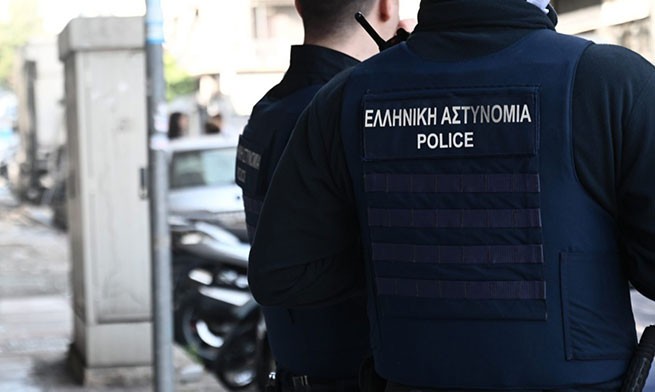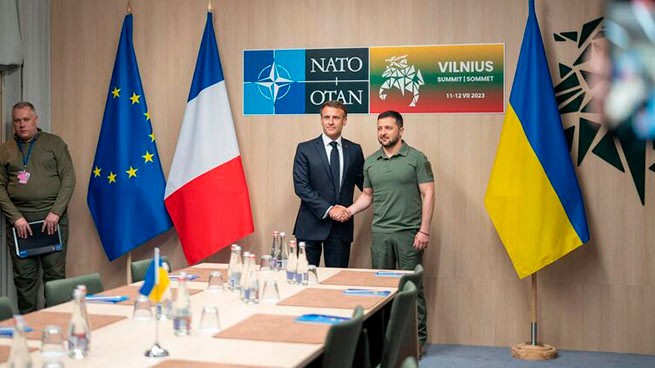For several weeks now, one of the main topics of discussion has been Macron’s statements about the possibility of introducing NATO troops into Ukraine.
So far, the reaction of most Western countries has been rather negative. And Macron himself interprets his statements extremely inconsistently. And this has already raised suspicions that this is a bluff, and no one actually intends to send in troops. There is also the exact opposite version – that the decision to send troops has already been made.
We analyzed what is happening in reality. Brief conclusions:
1. This is not a bluff. But not voicing an already made decision. This is a probe. Through the mouth of the President of France and some other leaders of NATO countries who supported him, that part of the Western elites speaks, which believes that Russia will not decide on a nuclear response, and therefore the alliance should not be afraid to enter into a direct war with the Russian Federation in order to inflict a strategic defeat on it, since this is not It turned out to be done by the Ukrainian army. At the same time, this point of view is not yet shared by a significant part of Western leaders, who consider the nuclear threat to be real and are not ready to take risks, especially since there is a variant of the “Korean scenario”, which means stopping the war along the front line. And this will not be a defeat or capitulation of either Ukraine or NATO. Ukraine will retain its independence, control over most of the territory and, most importantly, a combat-ready army, which will be the strongest deterrent to any attempts by the Russian Federation to attack not only Ukraine, but also Europe.
2. Macron's statement – this is a sounding of the reaction of all parties (the West, Russia, and non-Western countries), on the basis of which a decision will then be made whether to send troops or not.
3. There is a possibility that even if there is no consensus in NATO on the deployment of troops, individual countries will introduce them on their own initiative. But this carries a huge risk for the alliance. Since if Russia begins to respond in response to strikes on the territory of NATO countries that sent troops to Ukraine, and NATO does not respond to this, saying “we didn’t send you there,” this will actually be the end of the alliance, which, it turns out, does not guarantee the security of its members. Which could have far-reaching consequences. Until the collapse of NATO and EU, and the alliance of some of its former members with Russia and China. Therefore, the United States will try to prevent such a scenario. At least until they themselves are ready to enter the war, promising to respond to Russian strikes against NATO countries.
4. There is no choice now – “the defeat of Ukraine or the entry of Western troops into Ukraine.” There is another choice – either ending the war along the front line with agreements on a security system in Eastern Europe that will prevent a new war, or a long war of attrition with the prospect (if NATO countries intervene in the war) of transition to the nuclear stage. Now the Ukrainian Armed Forces cannot go on the offensive to liberate the occupied territories. Russia, theoretically, has the potential to turn the situation in its favor, but this has a very high price – it needs to mobilize, completely transfer the economy to a war footing. And even this does not guarantee victory. Therefore, it is likely that without the intervention of external forces the war will go towards extinction. The only question will be the timing of when this will happen and the conditions under which the war will be stopped.
5. The deployment of NATO armies will not allow the war to die out, which, it is possible, is one of the goals of those who advocate this option. Limited intervention by the alliance will keep the fire of war going for years to come, with a not very clear outcome (possibly with the same fading along the front line, but after thousands and thousands more casualties). Widespread Western intervention, creating a threat of defeat for the Russian Federation, could lead to escalation and nuclear war. Because the only format in which Russia can fight NATO “on equal terms” is nuclear.







More Stories
WSJ: Mike Pompeo voiced "Trump's peace plan for Ukraine"
Survey about "brotherhood of the Russian and Ukrainian peoples"
Neo-Nazis claim responsibility for Farion's murder